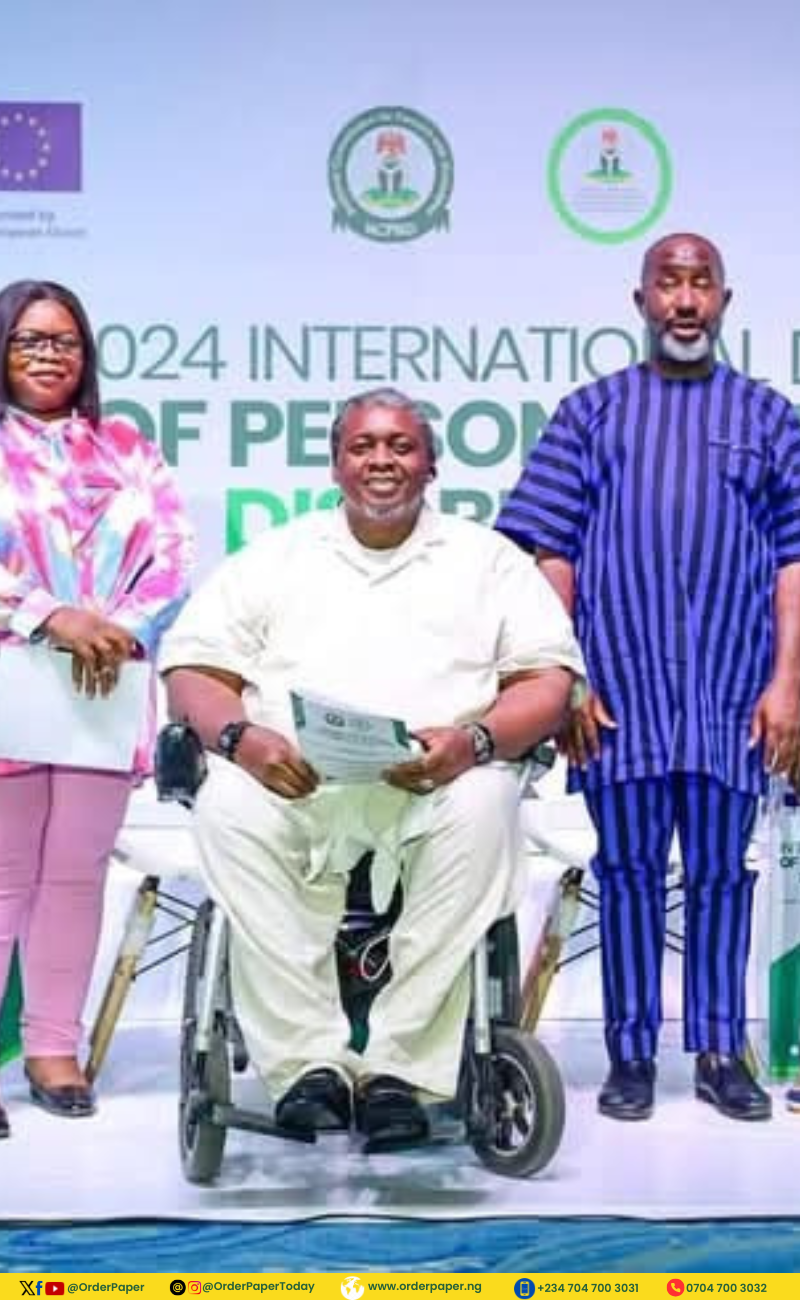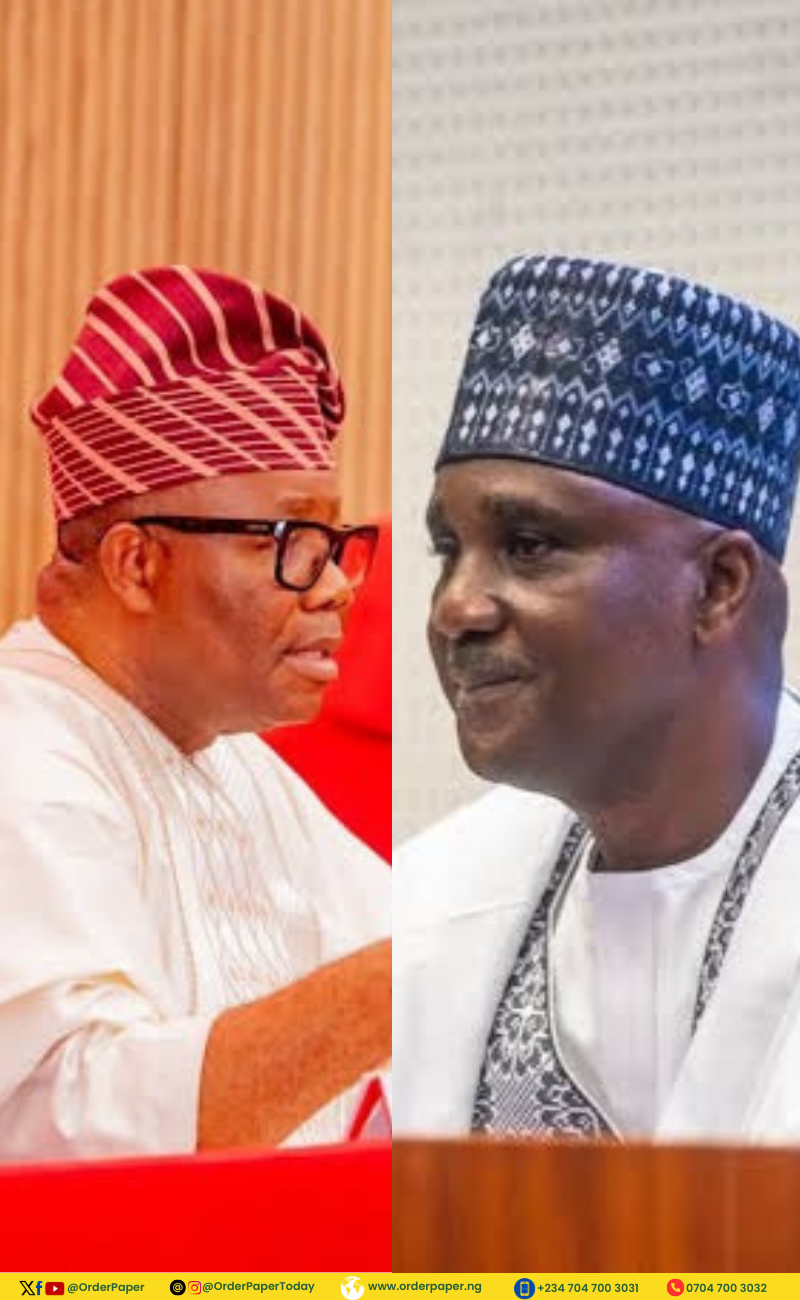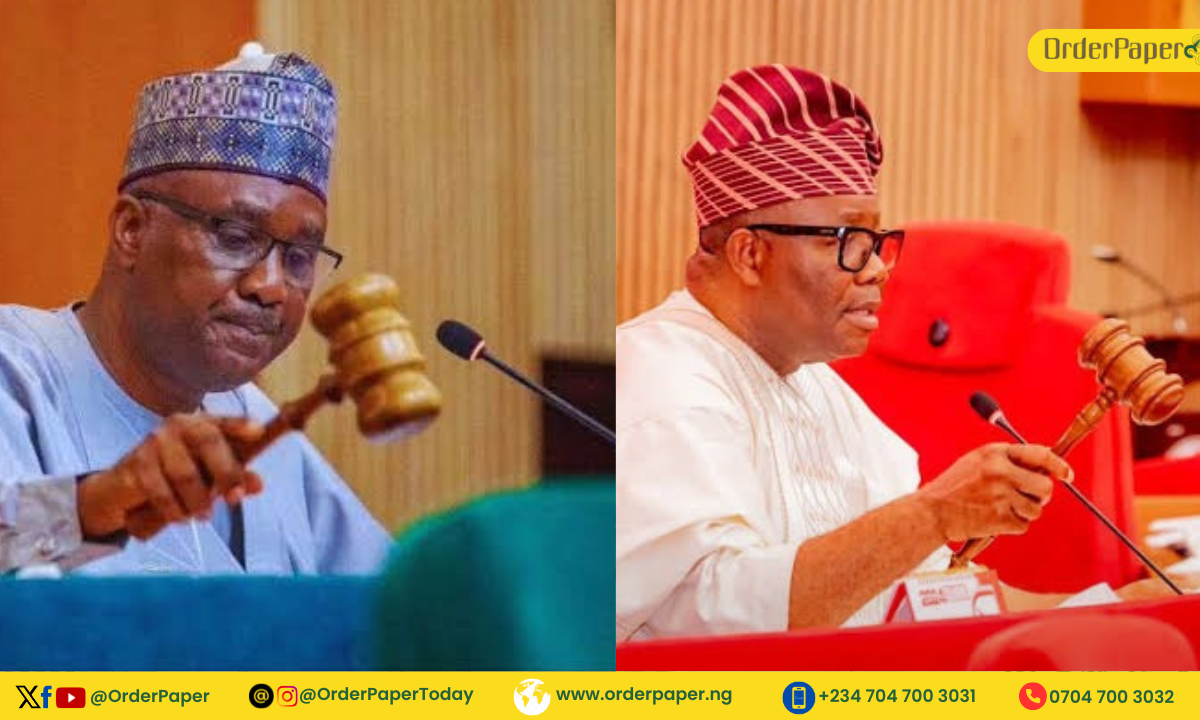This special edition of our Gender Equality and Social Inclusion (GESI) Tracker highlights allocations to women and youths and funding for vulnerable populations in President Tinubu’s 2025 budget estimates.
![]()
Last December, President Bola Tinubu presented the 2025 budget proposal of ₦47.90 trillion to a joint session of the national assembly. The budget outlines priorities for national rebuilding and economic stability. However, a closer look at allocations to ministries critical to Gender Equality and Social Inclusion (GESI) raises pertinent questions about the government’s commitment to inclusivity.
Here’s a look at GESI-related allocations:
Ministry of women affairs: ₦82.36 billion | Percentage of total budget: 0.17 percent
Ministry of youth development: ₦449.28 billion | Percentage of total budget: 0.94 percent
Ministry of humanitarian affairs and poverty alleviation (including the National Commission for Persons with Disabilities): ₦337.31 billion | Percentage of total budget: 0.70 percent
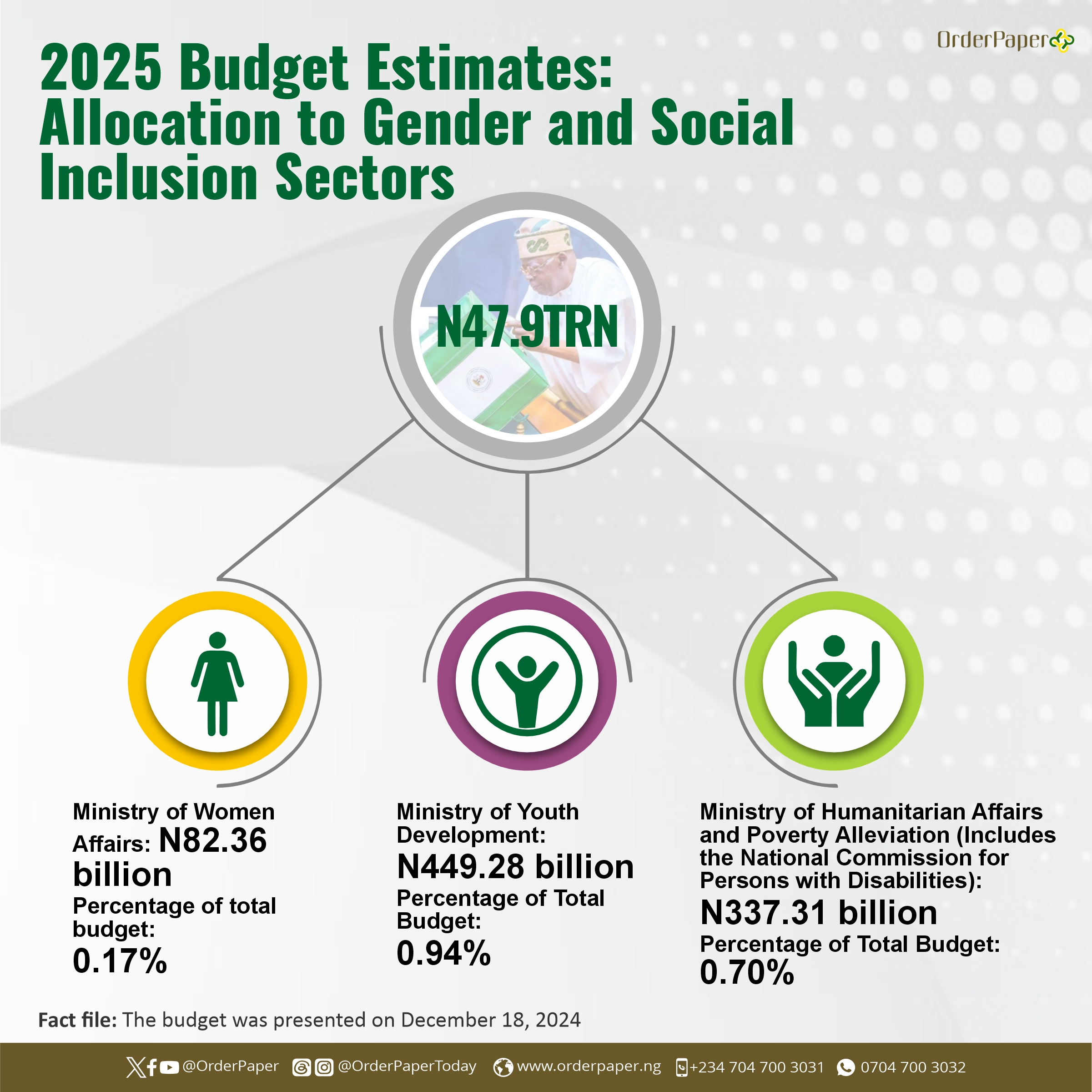
These figures indicate that ministries directly addressing the needs of women, youth, and vulnerable populations received 1.81 percent of the total budget estimate combined. This allocation raises questions about the prioritisation of critical sectors essential for fostering inclusivity and equity.
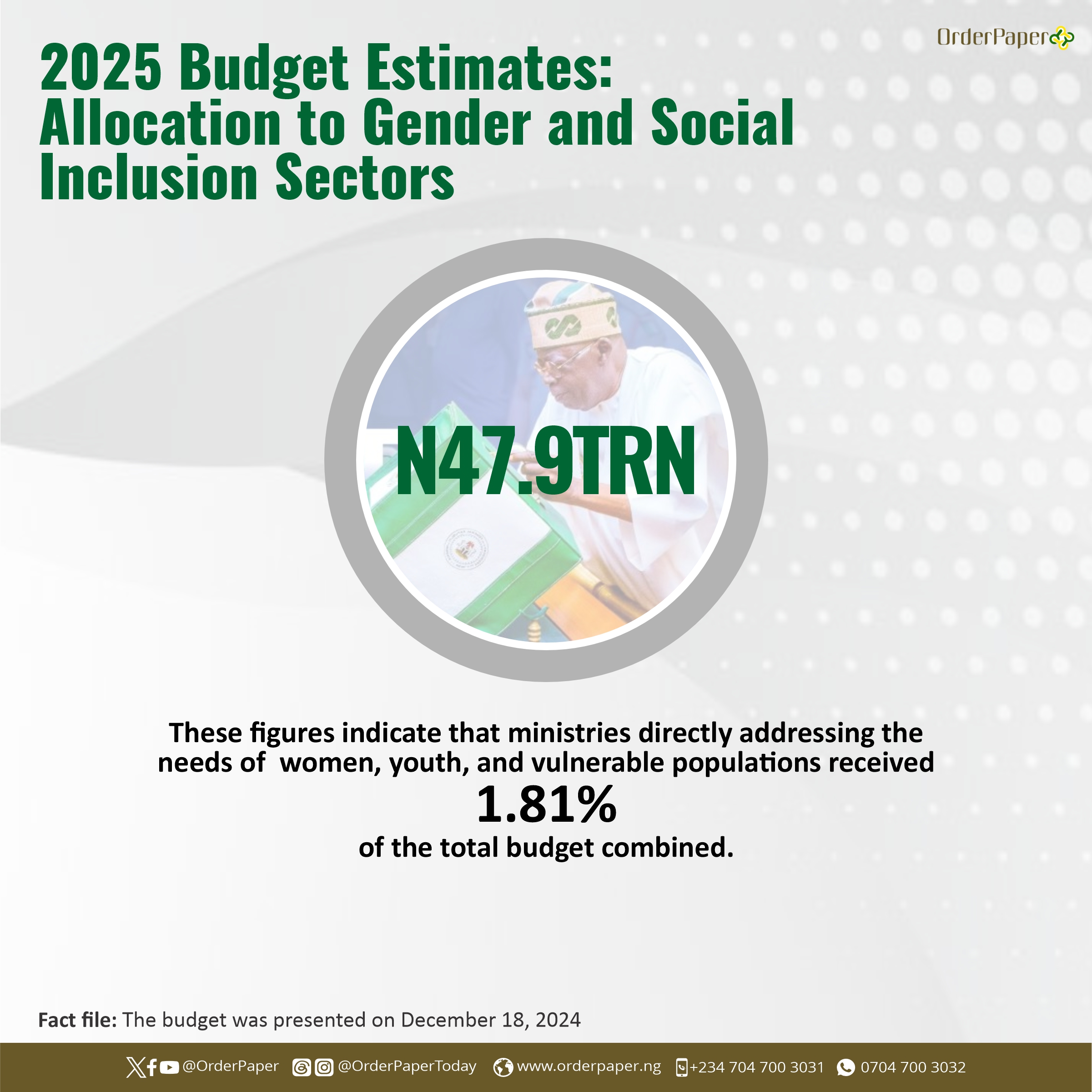
In 2024, the ministry of women affairs was allocated ₦14.48 billion, indicating a modest increase in the 2025 budget. Similarly, the 2024 budgetary allocation to the ministry of youth development was N204. 69 billion and the ministry of humanitarian affairs got ₦532 billion. However, these adjustments compared to the rising needs of these demographics and inflationary pressures can be considered insufficient.
Youths, 2025 budget and Mr. Speaker
With over 60 percent of Nigeria’s population made up of youth, they represent the foundation of the nation’s future. Recognising this, the House of Representatives, prior to the budget presentation, engaged with young Nigerians. Speaker of the House, Rep. Tajudeen Abbas (APC, Kaduna), underscored the importance of incorporating youth perspectives into Nigeria’s policymaking and budgetary processes. He highlighted the transformative contributions of young people in sectors such as agriculture, technology, arts, sports, and entrepreneurship. Rep. Abbas stressed that government policies, programs, and budgets must be deliberately crafted to empower the youth, acknowledging them as both current drivers of growth and future leaders. The speaker said these at a town hall meeting focused on youth-centric budgeting, which addresses the unique challenges, needs, and opportunities of young people.
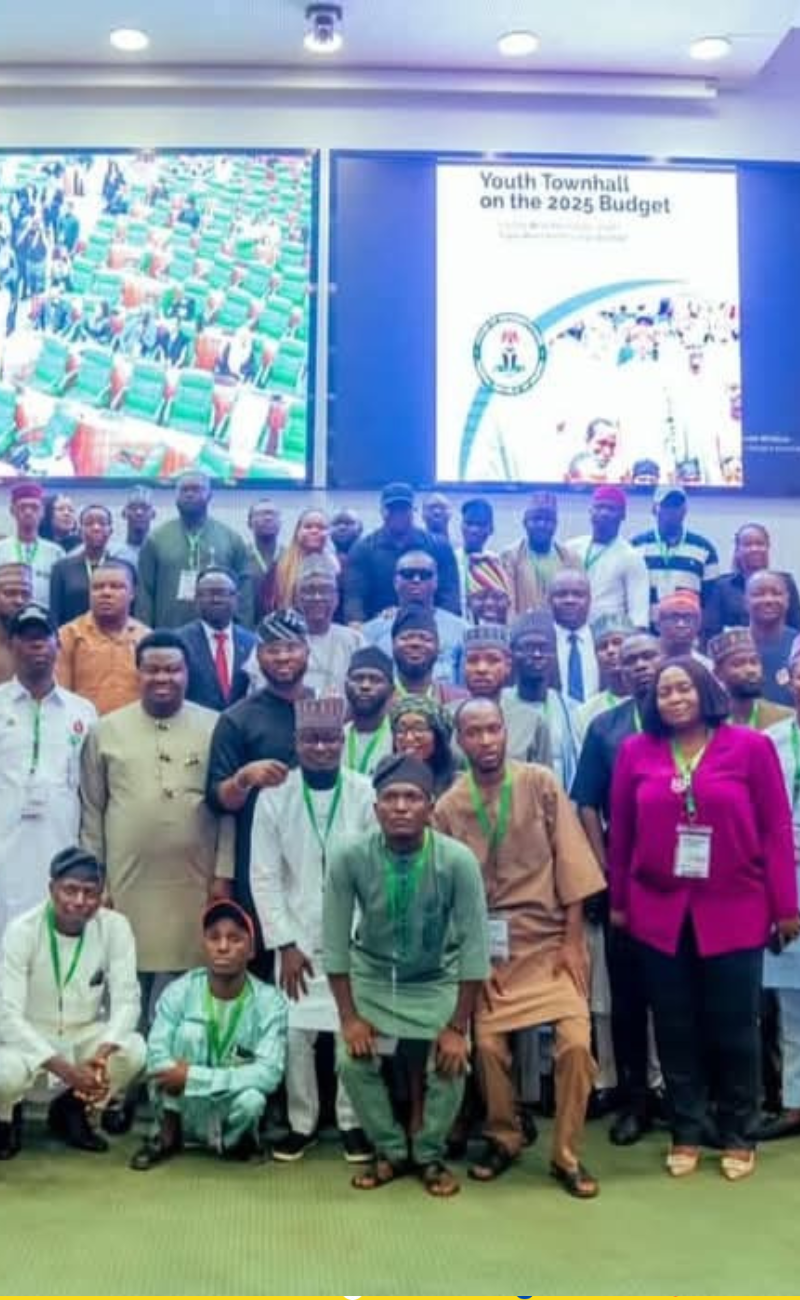
Looking at this town hall engagement from the GESI lens, it provides an inclusive platform for young people to engage in governance and decision-making. Youth are often excluded from budgetary processes; however, having a townhall with youth few days before budget presentation almost defeats the purpose because the youth are supposed to be involved in the preparation to get their opinion on what is needed for their advancement. Prioritising youth engagement, in preparation of the budget empowers them to contribute meaningfully to the discourse, ensuring that their concerns such as education, employment, health, and social inclusion are reflected in the budget.
Rep Abbas also revealed that he has also reached out to women groups and artisans to make their voices heard to ensure that the budget reflects the aspirations of the Nigerian people. As nation builders, women’s roles transcend family and community, directly impacting economic growth and social stability. Yet, the ministry of women affairs received only ₦82.36 billion, signaling a need for greater commitment to gender equality and the empowerment of women across sectors.
While the 2025 budget aims to rebuild prosperity, the allocations to ministries critical to GESI reflect a need for deeper commitment to inclusivity. Addressing the needs of Nigeria’s youth and women is not just a moral imperative but an economic necessity to secure peace and rebuild prosperity for all. The federal government should ensure that future budgets align more closely with the demographic realities and developmental aspirations of the nation.

